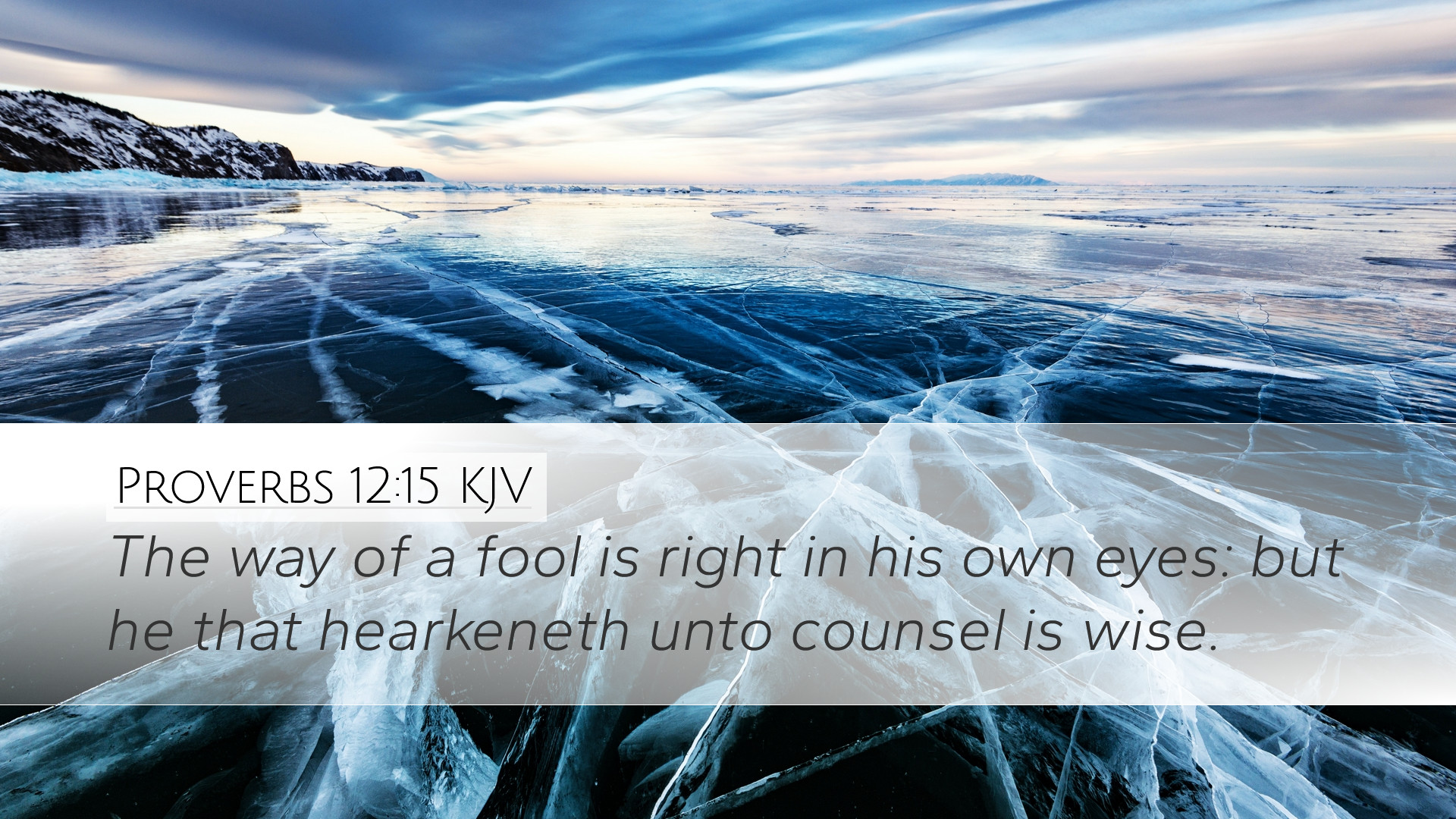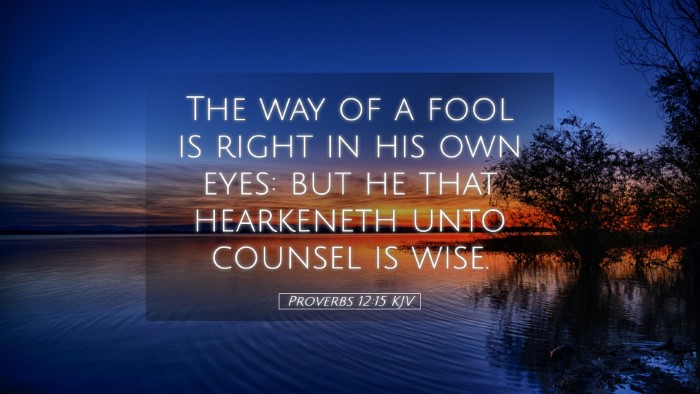Commentary on Proverbs 12:15
Verse: "The way of a fool is right in his own eyes: but he that hearkeneth unto counsel is wise." (Proverbs 12:15)
Introduction
Proverbs 12:15 presents a profound wisdom that addresses the human proclivity towards self-deception and the value of seeking counsel. This verse contrasts the attitude of the fool, who relies solely on his own judgment, with that of the wise, who recognizes the importance of external advice and guidance. The insights from various public domain commentaries will elucidate the depth of this wisdom and its applicability in the life of believers, scholars, and leaders.
The Fool's Self-Deception
The first part of the verse, "The way of a fool is right in his own eyes," reveals the inherent flaw in human reasoning devoid of divine wisdom. Matthew Henry emphasizes that a fool, characterized by a lack of understanding and moral discernment, trusts in his own judgment, often leading to erroneous paths. This self-righteousness indicates a lack of humility and disregard for the insights that others might offer.
- Self-Righteousness: The fool's belief in his own rightness conveys a fundamental pride that blinds him to the truth. Albert Barnes points out that such an attitude is dangerous, as it leads to choices that may ultimately result in suffering or failure.
- Consequences: Adam Clarke elaborates on the consequences of ignoring wise counsel, suggesting that the fool not only missteps himself but may also lead others astray. This speaks to the communal aspect of wisdom, where the choices of one can have wider implications.
The Value of Listening to Counsel
The second part of the verse, "but he that hearkeneth unto counsel is wise," marks a sharp contrast to the fool's folly. Here, the emphasis is on the virtue of humility and the pursuit of wisdom through the counsel of others. Matthew Henry asserts that true wisdom is found in heeding advice from those who are knowledgeable and experienced.
- Humility and Growth: Barnes points out that the wise person demonstrates humility by being open to correction and instruction, recognizing that there is always more to learn. This openness fosters personal and spiritual growth.
- Seeking Godly Counsel: Clarke highlights the importance of seeking counsel not only from peers but from Godly figures and scripture. This aligns with the biblical theme of wisdom being found in the Fear of the Lord (Proverbs 1:7).
Practical Applications
The timeless wisdom encapsulated in Proverbs 12:15 offers several practical applications for pastors, students, theologians, and Bible scholars.
- Encouraging Counsel: Pastors and leaders are encouraged to foster environments where counsel is sought and valued. This creates a culture of openness and growth within congregations.
- Personal Reflection: Individuals should engage in self-examination to identify areas where they might be acting foolishly out of self-reliance. Regular reflection on one’s decisions and seeking feedback can prevent the pitfalls of pride.
- Discipleship and Mentorship: The pursuit of wisdom should actively involve seeking mentors and wise individuals in the community who can provide guidance and insight.
Theological Implications
This verse also raises significant theological questions regarding human nature, divine wisdom, and the role of community in spiritual development. The inclination of the fool towards self-righteousness is seen as part of the fallibility of humanity, while the pursuit of wise counsel reflects the need for communal reliance on God’s truth.
- Human Fallibility: The acknowledgment of one's limitations is essential in Christian theology. Adam Clarke points out that submission to counsel is a form of recognizing our dependence on God’s wisdom.
- Community and Accountability: Christian life thrives within a community where believers hold each other accountable. This verse underscores the necessity of accountability that fosters growth in wisdom.
Conclusion
In sum, Proverbs 12:15 serves not only as a warning against the perils of self-reliance but as an exhortation to cultivate a humble heart open to the guidance of others. It challenges individuals to seek out wise counsel, thus embodying the biblical principle that true wisdom begins with the acknowledgment of one's need for divine insight. Whether for personal growth, communal leadership, or theological reflection, the lessons contained in this passage are evergreen and vital for those pursuing a life marked by wisdom and grace.


